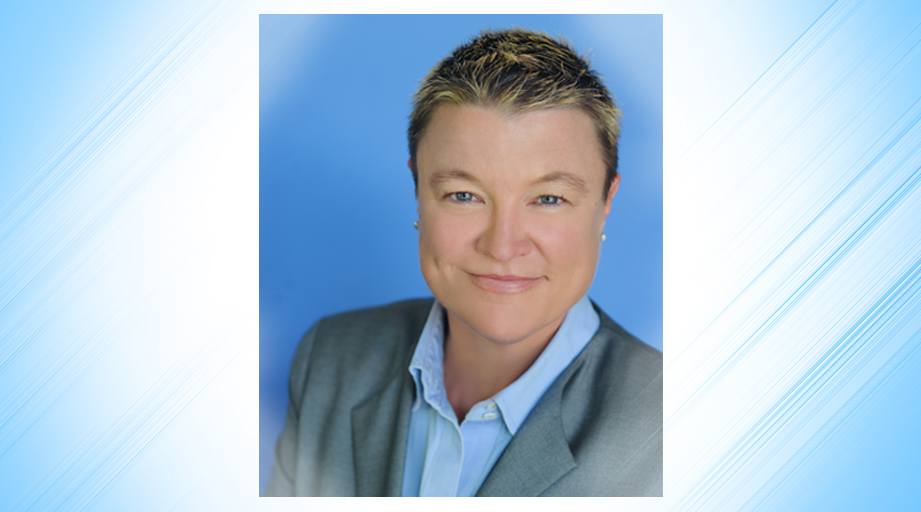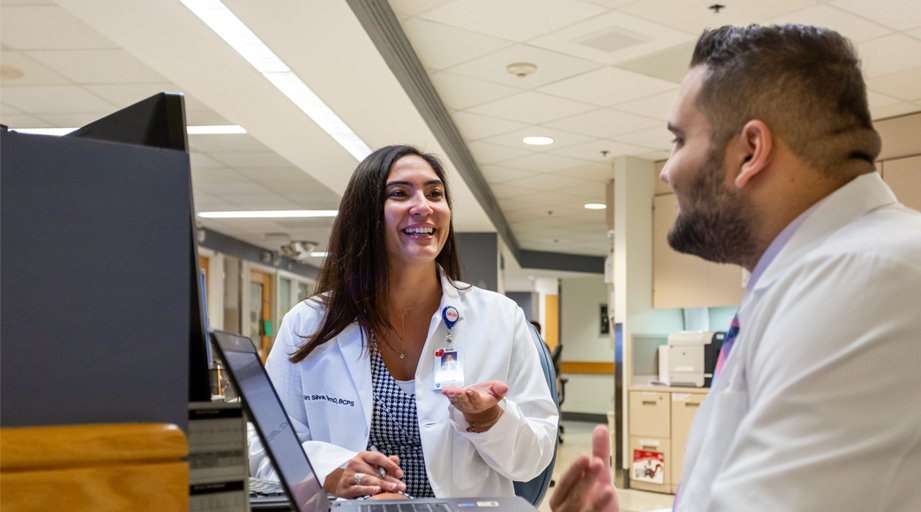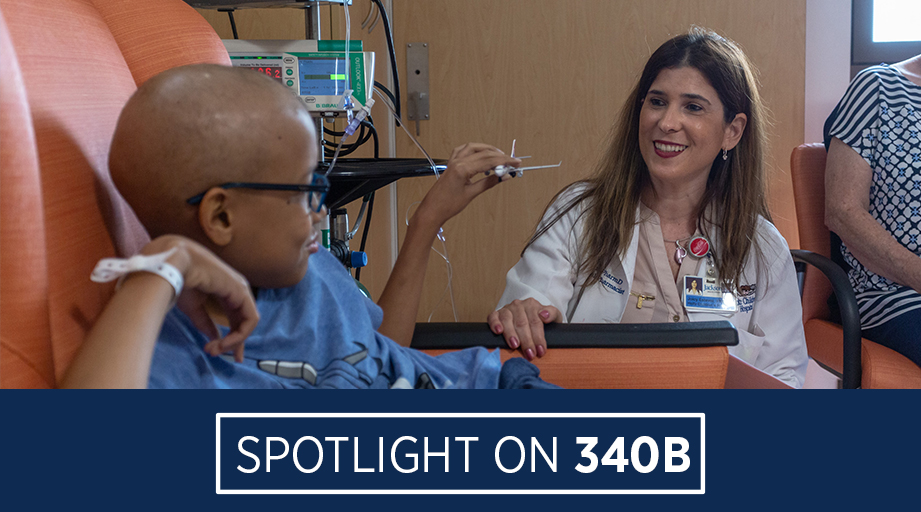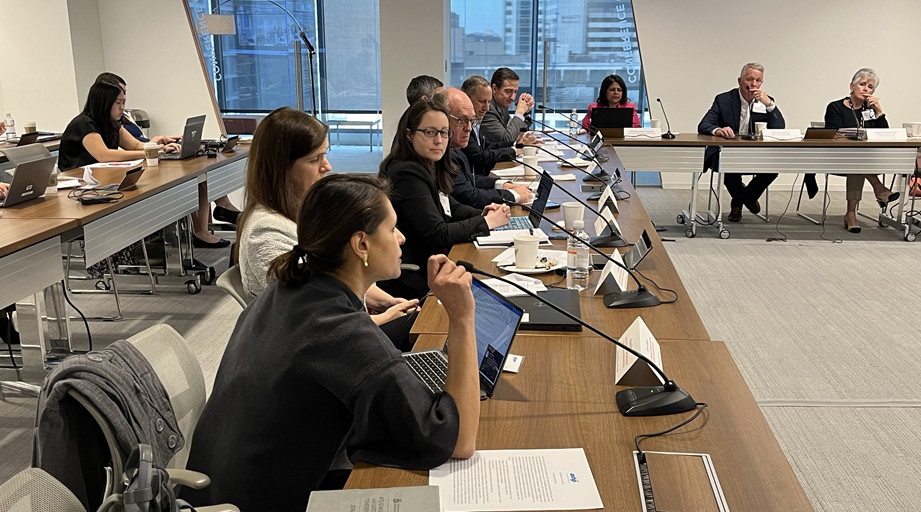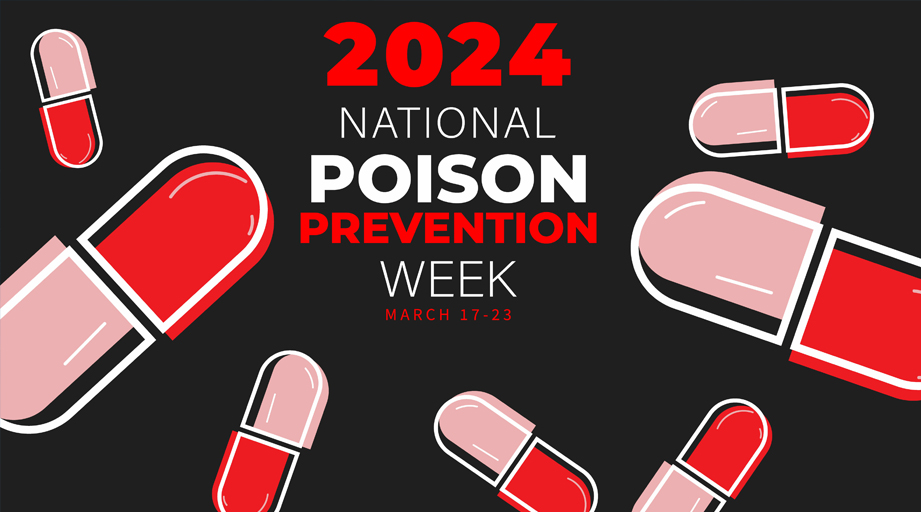
Clinical learning environments that support practitioners’ health and welfare are needed for optimal patient care, said participants at a May 29 public meeting on clinician well-being convened by the National Academy of Medicine (NAM).
“The cultures in our learning environments are, in fact, very powerful,” said Holly Humphrey, President of the Josiah Macy Jr. Foundation, a nonprofit organization that supports the advancement of health professions education.
Humphrey told meeting attendees that annual survey responses submitted by her medical residents over 14 years consistently revealed fears about how they would emerge from training.
“They were afraid of hurting a patient — and they were afraid of losing themselves, losing their humanity, in the course of their residency education,” Humphrey said.
The public meeting was an activity of NAM’s Action Collaborative on Clinician Well-Being and Resilience. ASHP is an original sponsor of the project, which was launched in 2017.
The May 29 meeting took place at Accreditation Council for Graduate Medical Education (ACGME) headquarters in Chicago.
ACGME Chief Education and Organizational Development Officer Timothy Brigham said the clinical learning environment is “where we turn people who want to be clinicians into clinicians” and where lifelong attitudes and behavior patterns are formed.
Brigham and other speakers said an ideal learning environment supports trainees and creates compassionate, empathetic clinicians who embrace their patients’ priorities while providing safe, optimal care.
“What we’ve done systematically in our clinical learning environment, in some ways, is taken time away from that,” Brigham said.
Brigham is cochair of ACGME’s Physician Well-Being Task Force, which is part of the accrediting organization’s overall effort to improve healthcare through advances in the training of medical residents.
He said ACGME launched the task force, in part, in response to the suicide of a young physician who came to Chicago for an advanced residency program and took his life four months later.
According to NAM, an estimated 400 physicians commit suicide each year, more than double the national average for the general population.
The collaborative’s five working groups, over a four-year period, are tasked with identifying evidence-based strategies to improve clinician well-being and to develop resources that further that aim.
One of the objectives for the May 29 workshop was to identify culture changes that foster clinicians’ productivity and efficiency while promoting a human connection with patients.
Barry Rubin, Medical Director for University Health Network’s Peter Munk Cardiac Centre in Toronto, speaking on behalf of his NAM breakout session group, said it’s important to encourage clinicians to step out of their professional persona when interacting with patients.
“Identify yourself as a person and not just as the role that you’re playing” on the patient care team, he said. Rubin said this allows patients to see the clinician as a fellow human rather than a scary professional in a white coat.
Other goals for the meeting attendees included examining the clinical learning environment as an ecosystem affecting students, trainees, and practitioners in all clinical specialties and disciplines; creating a culture of respect that embraces team-based care; and elevating areas that bring joy, pleasure, and meaning to clinicians in their professional and learning environments.
Brigham said changing the clinical learning environment is difficult, but he called the May NAM meeting “a bellwether” for driving that change.
NAM’s website has information about past meetings of the collaborative and a collection of resources on clinician well-being.
Additional information for clinicians, including materials specific to pharmacists, is available at ASHP’s Resource Center on Workforce Well-Being and Resilience.


